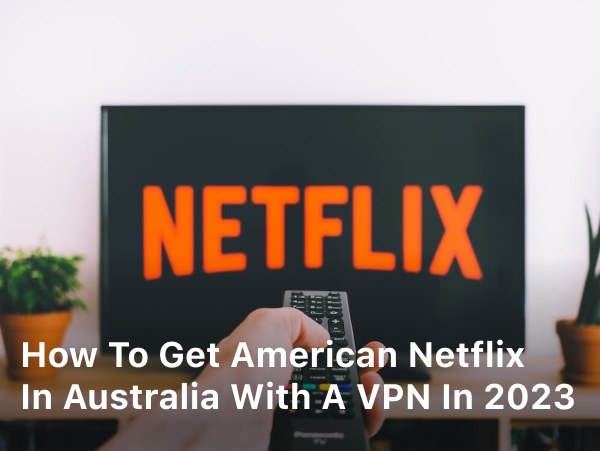How VPN Work with Blockchain Technology: A Secure Duo
Explore how VPN work with blockchain technology to enhance security, ensure privacy, and create a seamless, decentralized digital experience.
We’re always looking for better ways to keep our internet safe. That’s why we’re excited about VPNs and blockchain working together. They promise to make our online world safer and more private. Let’s explore how they can change the way we protect our digital lives.
VPNs are like digital shields that protect our data. They create secret tunnels for our information to travel safely. But what if we could make this shield even stronger with blockchain technology? This is how VPNs and blockchain can team up to make the internet a safer place for everyone.
Understanding the Basics of VPN and Blockchain
In today’s digital world, keeping our data safe is key. We’ll look at two important technologies: VPNs and blockchain. First, we’ll cover what VPNs do for our data security. Then, we’ll explain blockchain and its role in tech today. Finally, we’ll see how these two can work together to boost security.
What is a VPN and How Does It Secure Our Data?
A Virtual Private Network (VPN) helps keep your online activities private. It creates a safe network from public Wi-Fi. VPNs hide your IP address, making it hard to track your online actions.
They also make sure your internet connection is secure. This is better than using a public Wi-Fi network. VPNs use cryptographic protocols to protect your data, keeping it safe from hackers.
Blockchain Explained: The Technology Behind Cryptocurrencies
Blockchain is a distributed ledger technology that keeps a record of digital transactions. It’s different from old-fashioned ledgers because it’s spread out on many computers. This makes it hard for one person to change the whole record.
Each block in the blockchain holds many transactions. When a new transaction happens, it gets added to every computer’s ledger. This makes the whole system very secure and trustworthy.
The Synergy between VPN and Blockchain
When you combine VPNs with blockchain, you get even better security. Blockchain helps make VPNs more secure by spreading out data handling. This also uses strong cryptography to protect your data even more.
This mix makes your online activities even safer. It also makes you trust your VPN more, since blockchain makes it harder to hack. This means your data is safer and more reliable.
The chart below shows how VPN and Blockchain work together to make your system more secure.
| Feature | VPN | Blockchain | Integrated System |
|---|---|---|---|
| Security Level | High | Very High | Highest |
| Data Handling | Centralized | Decentralized | Fully Decentralized |
| Trust Factor | Medium | High | Very High |
| Encryption | Strong | Not Applicable | Enhanced |
The Importance of Privacy and Anonymity Online
In today’s digital world, keeping our online privacy and anonymity is key. Every action we take online adds to our digital footprint. If not protected, this can lead to many cybersecurity threats. It’s vital to know how to protect our identity and browse securely.

Our digital footprint is the data we leave online. This includes shopping, browsing, and social networking. Each action can reveal personal info, making us vulnerable to cyber threats. To stay safe, we need strong identity protection.
Secure browsing is about keeping our online activities private. It also protects the data we share. Using strong passwords and following secure browsing practices can help fight cyber threats.
| Cybersecurity Threat | Consequence | Preventative Measure |
|---|---|---|
| Data Breaches | Loss of sensitive personal information | Utilize VPNs and update security patches regularly |
| Phishing Attacks | Identity theft | Enable multi-factor authentication and educate on phishing signs |
| Malware | System compromise and data corruption | Install anti-malware software and avoid suspicious downloads |
Technologies like VPNs and blockchain offer better security. VPNs hide our online actions by encrypting data. Blockchain spreads data across a network, making it harder to breach.
In summary, using these technologies can greatly improve our online safety. They help protect our digital footprint and keep our personal info safe from cyber threats.
Types of VPNs and How They Integrate with Blockchain
In today’s world, it’s more important than ever to improve our network infrastructure. We’ll look at different VPN types. We’ll see how blockchain and decentralized apps can boost our privacy and security.
Centralized vs Decentralized VPNs
Centralized VPNs are the usual choice for internet security. They use a single point to manage all nodes, which is efficient but risky. Decentralized VPNs spread the network across many nodes, making it harder to tamper with data.
This setup not only protects our privacy but also makes the network stronger.
Emerging Blockchain-Based VPN Solutions
Blockchain technology is bringing a new level of privacy and security to VPNs. These blockchain-based VPNs use a decentralized network for a safer online experience. It’s not just about building a strong system. It’s about keeping our data safe in a digital world.
| Feature | Centralized VPN | Decentralized VPN |
|---|---|---|
| Control Structure | Single entity | Distributed across many users |
| Data Privacy | Depends on provider | Enhanced by blockchain technology |
| Speed and Reliability | Highly dependent on the central server | Varies based on network spread and node performance |
| Scalability | Limited by server capacity | Scalable as per the blockchain network growth |
| Technological Innovation | Minimal | High, driven by decentralized applications |
Enhanced Security Features of Blockchain VPNs
Blockchain technology and VPNs together bring big security boosts. They focus on keeping your data safe and giving you more freedom online. With advanced encryption and smart access controls, they make your digital life more secure.
End-to-End Encryption and Secure Tunnels
Strong VPNs protect your data with top-notch encryption. Blockchain VPNs take it up a notch with end-to-end encryption. This means your data is locked in from start to finish.
They also use peer-to-peer networks. This spreads your data across many nodes. It’s hard for hackers to get to your data this way.
Smart Contracts as a Means of Access Control
Smart contracts are key in managing access with blockchain VPNs. They follow rules set on blockchain networks. This helps keep your data safe from unwanted eyes.
By using smart contracts, blockchain VPNs offer a new way to manage access. It’s all about keeping your privacy and freedom online safe.

| Feature | Description | Impact |
|---|---|---|
| Peer-to-Peer Networks | Distribution of data across various nodes. | Increases resistance to attacks and data breaches. |
| Advanced Encryption | High-level encryption of data from end-to-end. | Ensures secure data transmission. |
| Smart Contracts for Access | Automated execution of access rules. | Prevents unauthorized access, enhancing security. |
How VPN Work with Blockchain Technology
The world of digital communication has seen a big change with blockchain and VPNs working together. This mix boosts security and privacy. It also brings new networking solutions for today’s needs. Let’s explore how these technologies team up to offer strong privacy and what it means for everyone.
When blockchain meets VPNs, it brings a new way of handling data. This method spreads data across many places, not just one server. This makes data safer and more private. It uses special VPN protocols to encrypt data in many ways. This keeps the network safe even if one part is attacked.
- Decentralized data handling means no single point can access all user data. This makes the network stronger against attacks.
- Blockchain adds a secure record of every data move. This builds trust among users.
- With blockchain, VPNs get even better security. This makes the network safer against cyber threats.
One big plus of combining blockchain with VPNs is better privacy. Users stay more anonymous because their data is spread out. This is key in places where keeping data safe is very important.
To get a clearer picture of how blockchain and VPNs work together, look at these improvements in encryption and networking:
| VPN Protocol | Description | Benefit |
|---|---|---|
| Hybrid VPN | Integrates classical VPN architecture with blockchain. | Enhances user privacy by decentralizing the control over data. |
| Blockchain-based Secure Protocols | Uses blockchain to create secure communication tunnels. | Transactions and data exchanges are logged securely, ensuring non-repudiation and integrity. |
Blockchain and VPNs together are changing how we see digital privacy and security. This tech does more than just protect data. It opens up new areas for secure communication, data safety, and keeping users anonymous.
Improving Network Performance and Reliability
Blockchain technology and virtual private networks (VPNs) work together to boost network performance and reliability. Blockchain’s decentralized nature helps make networks more available and resilient. These traits are essential for a smooth user experience.
The Impact of Blockchain on VPN Speed and Latency
Adding blockchain to VPNs greatly improves network speed and reduces latency. Blockchain’s design allows for quick data checks and avoids bottlenecks. This means users can enjoy fast online activities without losing security.
How Blockchain Can Reduce VPN Downtime
Blockchain’s decentralized design also helps cut down on downtime. By spreading data across many nodes, blockchain keeps the system running even if one node fails. This is key for keeping services up and running smoothly.
| Feature | Traditional VPN | Blockchain-Enhanced VPN |
|---|---|---|
| Network Optimization | Limited by centralized servers | Enhanced by decentralized nodes |
| Latency | Higher latency due to single points of failure | Lower latency due to distributed processing |
| High Availability | Dependent on server reliability | Improved with node redundancy |
| Network Resilience | Vulnerable to localized disruptions | Strengthened by blockchain robustness |
Overcoming Geo-Restrictions with Blockchain-Enhanced VPNs
In today’s world, keeping the internet open and protecting our digital rights is key. Blockchain-enhanced VPNs lead the fight against internet censorship and geo-blocking. They open new doors for accessing content. Let’s explore how these solutions use blockchain to break down barriers and keep the internet free.
Bypassing Censorship with Distributed Ledger Technology
Distributed ledger technology creates a secure, decentralized network. This is vital for beating internet censorship. By spreading data across many nodes, blockchain-enhanced VPNs make it hard for anyone to block or watch what you do online.
This tech keeps your identity safe and lets you access information freely. It’s all about the digital rights that let us communicate without fear of being watched or censored.
Use Cases: Accessing Global Services Unhindered
Blockchain-enhanced VPNs are great for getting to global services without interruption. People worldwide use them to watch international sports, access educational materials, and more. These tools let users enjoy a wide range of global content, making the internet more accessible to everyone.
| Feature | Benefits | Impact on Digital Rights |
|---|---|---|
| Decentralization | Reduces reliance on centralized control, reducing the potential for censorship | Enhances user privacy and freedom of information |
| Anonymity | Protects user identity from surveillance and tracking | Supports the right to privacy and secure communication |
| Global Access | Enables access to geo-restricted content and services | Promotes equality of content accessibility across different regions |
By using blockchain, VPNs become a strong tool for keeping the internet open. They fight against geo-blocking and make sure everyone can access content. This makes the internet a place for innovation, cultural exchange, and free speech worldwide.
Tokenization: The Economic Model of Blockchain VPNs
Blockchain VPNs are changing how we think about online security and money. They use tokenization to create a new way of making payments and networking. This model shows how blockchain can do more than just keep data safe.

Token economies use cryptocurrencies for easy transactions. They offer privacy and lower costs without many middlemen. This makes payments faster and safer, just like VPNs aim to do.
Tokenization also makes networking better by rewarding users. They get tokens that can be used in real life. This not only grows the network but also makes it stronger and more reliable.
User empowerment is key in token economies. Blockchain VPNs let users control their data and privacy. This helps fight against data breaches and privacy issues. Users get to manage their data in a new, better way.
| Feature | Impact on Networking | User Benefits |
|---|---|---|
| Cryptocurrency Payments | Streamlined transactions with enhanced security | Reduced costs, privacy, no intermediaries |
| Incentivized Networking | Promotes network growth and security | Earn tokens, increase network stability |
| User Empowerment | Decentralized control over data and privacy | Greater transparency, control over personal data |
Blockchain VPNs are changing online security and money. They offer a new way to interact online. It’s not just about staying safe; it’s about making the internet better for everyone.
Challenges and Limitations of Blockchain VPNs
Blockchain VPNs bring better security and privacy, but they face challenges. It’s important to understand these issues to use these technologies well. We’ll look at scalability, regulatory compliance, and the barriers to adoption.
Scalability Issues and Their Solutions
Scalability is a big problem with blockchain VPNs. As they grow, they can slow down and cost more. But, there are solutions in the works.
Sharding and Layer 2 solutions like state channels and sidechains are being developed. These could make blockchain VPNs faster and cheaper. This way, they can handle more users without losing speed.
Legal and Regulatory Hurdles for Blockchain VPN Providers
Blockchain VPNs face big legal hurdles. Laws vary by country, making it hard for providers to follow all rules. The legal status of blockchain is still unclear, adding to the problem.
To innovate in VPNs while staying legal, providers need to balance innovation with legal knowledge. They must also be ready to change their protocols as laws change.
In conclusion, solving these challenges is key for blockchain VPNs to grow. By improving scalability and dealing with legal issues, we can make blockchain VPNs better. They could change how we think about online privacy and security.
Conclusion
We’ve explored how VPN and blockchain work together to change online security. As threats grow, our defenses must too. This combo offers a strong shield for those wanting safe internet use.
The mix of VPN and blockchain makes our online interactions safer. It also lets us control our data better. This means we can use the internet more freely and safely.
Now, it’s up to us to keep pushing for these technologies. They help fight against unwanted surveillance and protect our privacy. By using these tools, we can stay ahead of online threats.
Looking ahead, blockchain and VPN will be key in digital progress. They’re not the end but a step towards better internet safety. Let’s support this progress and protect our data.
The future of online safety is clear. It’s about knowledge, being careful, and seeking new ways to protect us. Together, we can make the internet safer for everyone.
Want to learn about the synergy of privacy and decentralization? Visit vpnpitbull.com to uncover how VPN work with blockchain technology for ultimate security!




